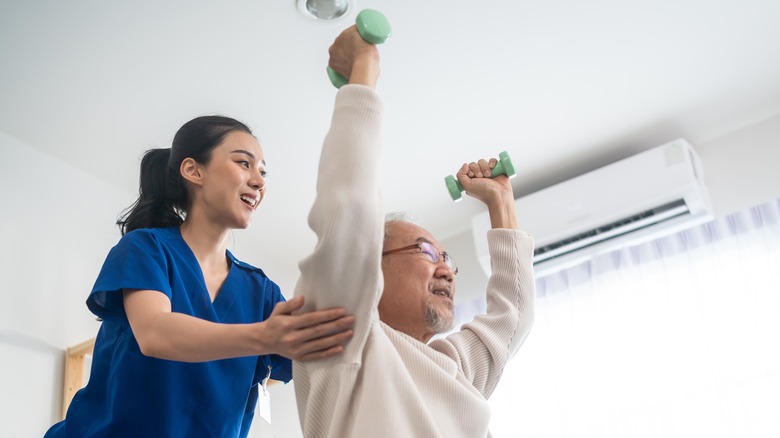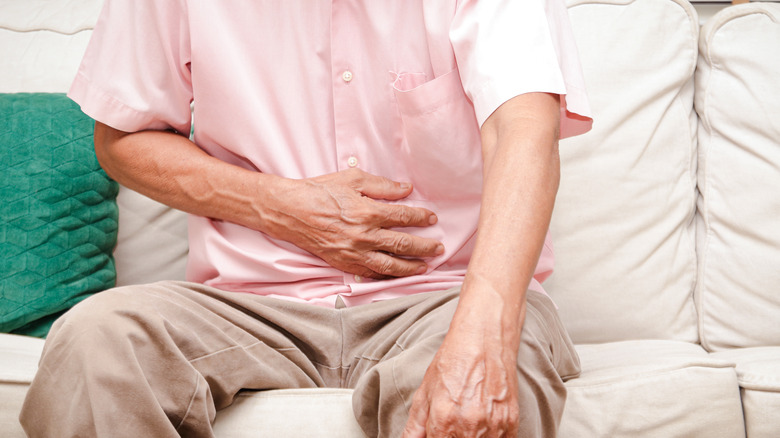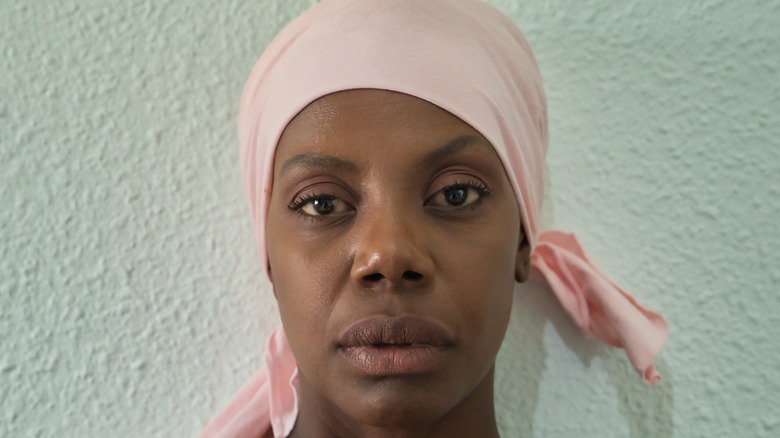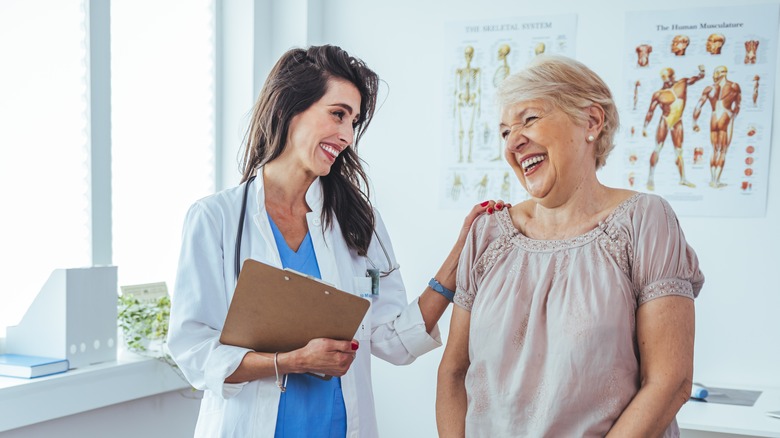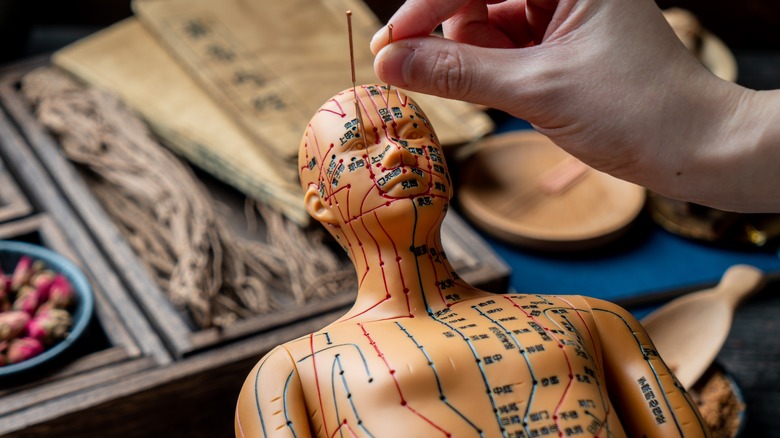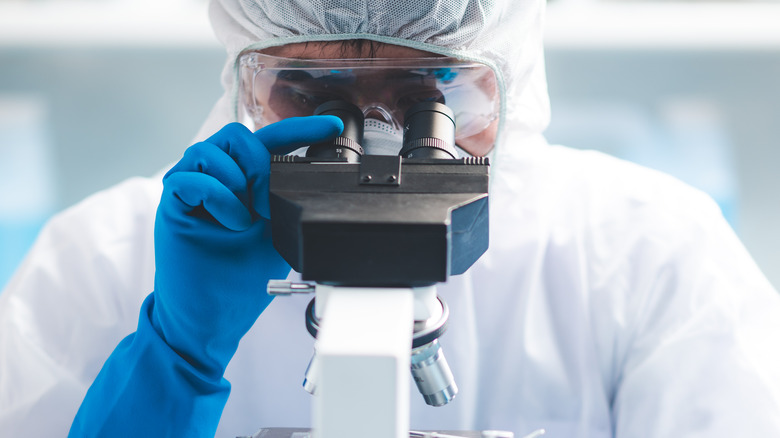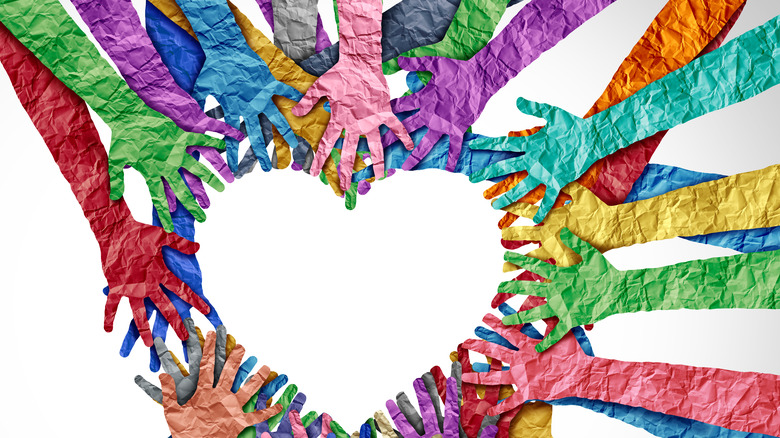What You Need To Do To Prepare Your Body For Chemotherapy
While chemotherapy is a common treatment, fear of the unknown is a genuine concern. Regardless of how common therapy may be, your experiences and journey will be unique to you. Learning about chemotherapy options, goals, and potential side effects is essential to help prepare your mind, body, and spirit.
There are many different types of chemotherapy, each designed for specific types of cancer or various conditions. The goal of chemotherapy is to cure cancer if possible, but if not, to control its spread. In some cases, palliative treatment may be recommended to relieve symptoms when the cancer is not curable or controllable. Chemotherapy can have significant side effects, so it's important to talk to your doctor about the type of chemotherapy you'll be receiving and how to minimize its impact and increase your chances of successful treatment.
Furthermore, planning and preparation are critical following a cancer diagnosis. As you embark on this journey, becoming informed about the disease process, understanding how to cope, and learning what resources are available are beneficial tasks.
Planning for nutritional needs during chemotherapy
A nutritious diet is essential for everyone, especially those undergoing chemotherapy. Eating the right foods can help your body both before and during treatment. However, according to Stanford Medicine, consuming bland foods in small portions may be necessary during chemotherapy to alleviate side effects such as fatigue, nausea, and decreased appetite. It is critical to plan for treatment days by packing enough snacks and fluids to keep you going throughout the day.
As a part of preparing your body, it is also essential to speak with your doctor about what to expect during treatment. For instance, you'll want to know whether your therapy will result in weight loss or gain, or if it might lead to a deficiency of specific vitamins and minerals that must be replenished. Additionally, focusing on healthy fats, carbohydrates, and plant-based proteins can help ensure your body has the fiber, fatty acids, and energy needed to keep you strong (via Johns Hopkins Medicine). Before beginning chemotherapy, consult a registered dietitian who can assist with budget-friendly meal plans and simple-to-prepare foods.
Physical activity during chemotherapy can improve outcomes
If you are about to embark on a chemotherapy journey, don't overlook the importance of physically preparing your body. Exercise can play a vital role in maintaining good health, boosting energy levels, and managing the side effects of treatment. But before you begin, be sure to consult with your healthcare team to determine what's safe and best for you.
Remember, exercise doesn't have to mean hitting the gym. Simple and low-impact activities like stretching, yoga, or walking can do wonders for your body and mind during this challenging time. The key is to listen to your body, start slowly, and gradually increase the intensity as you feel comfortable. There will be days when you feel great and days when you don't want to move — understand that it's ok to set a goal of just walking to another room on bad days as long as you can capitalize on the good ones (via 2Unstoppable).
According to the American Institute for Cancer Research, other benefits of physical activity are increased support of the body's natural healing processes, boosting the immune system, improved circulation, and better management of symptoms like fatigue, anxiety, and depression. Exercise can also enhance sleep quality and help you feel more in control during a time when your body is going through so many changes. With a little effort, you'll be amazed at how much of a difference physical activity can make.
Managing stress and anxiety
Chemotherapy can be a challenging and stressful experience, but managing stress and anxiety is key to overall well-being and healing during treatment. Several effective strategies can be employed to help prepare for and reduce stress and anxiety. Firstly, mindfulness and relaxation techniques such as deep breathing, meditation, and progressive muscle relaxation can help calm the mind and promote a sense of inner peace. These techniques may be performed anywhere and tailored to individual needs and preferences (via Cancer). Secondly, social support is essential for managing stress and anxiety during chemotherapy. Talking to loved ones, joining a support group, or seeking support from a therapist can provide a sense of comfort and security during this challenging time.
Lastly, engaging in activities that bring joy and pleasure can help manage stress and anxiety during chemotherapy. This can be anything from listening to music, reading a book, or pursuing a hobby. Taking time to do things that bring happiness and a sense of accomplishment can boost self-esteem and improve overall well-being. By incorporating stress and anxiety management techniques into a comprehensive plan, you can prepare your mind and body for chemotherapy's challenges and feel stronger and more resilient ( per the Cancer.Net).
Sleep and rest -- listen to your body's natural cues
Chemotherapy can be a physically and emotionally taxing experience, and it's important to prioritize self-care and rest during treatment to aid recovery. According to a study published in Nature and Science of Sleep, as many as 87% of cancer patients experience sleep problems. Therefore, getting adequate sleep and rest is crucial to preparing the body for chemotherapy. Fortunately, several strategies can help.
To begin with, establishing a regular sleep schedule by going to bed and waking up at the same time each day can regulate the body's internal clock and improve sleep quality. Creating a sleep-conducive environment, such as keeping the room cool and dark, can also aid in a good night's sleep. Additionally, limiting exposure to screens, such as televisions, computers, and smartphones, before bedtime is essential. The blue light emitted by these devices can interfere with sleep and make it harder to fall asleep and stay asleep. Instead, engaging in relaxing activities, such as reading a book, taking a warm bath, or listening to calming music, can help prepare the mind and body for sleep (via University of Iowa Hospitals & Clinics).
Finally, it's important to listen to the body's natural cues and allow yourself to rest when you feel tired. If you need to nap during the day, limit it to an hour or less to avoid night-time insomnia (per Chemocare). Individuals can help prepare their bodies for chemotherapy by consistently prioritizing sleep routines.
Be prepared for managing side effects
Chemotherapy can cause a range of side effects that have the potential to impact quality of life significantly. Some common symptoms include pain, nausea, vomiting, diarrhea, and constipation. It's essential to be proactive and work with your healthcare team to manage these symptoms during treatment.
Starting with pain management, Cancer Choices mentions that it's essential to communicate with your healthcare provider about any discomfort you're experiencing. Your doctor will work with you to find a solution to manage your pain during treatment. It is important to note that not all patients receiving chemotherapy will experience pain. However, if you do, your doctor can provide you with the appropriate treatments, including over-the-counter or prescription pain medications. In some cases, alternative therapies, such as massage, acupuncture, or heat therapy, may also be recommended to manage pain.
Furthermore, gastrointestinal symptoms are common during chemotherapy. Talking to your healthcare team about managing these symptoms before starting treatment is important. According to a study published in Therapeutic Advances in Chronic Disease, nausea and vomiting are two common side effects of chemotherapy that can affect up to 80% of patients, but anti-nausea medications can help. Your diet and eating patterns — such as eating smaller meals or avoiding certain foods and smells — can also play a role in managing these symptoms. Diarrhea or constipation may also occur, depending on the treatment. Speaking with your healthcare team ahead of time can help develop a plan to minimize these side effects.
Prepare for the impact of chemotherapy on your hair and skin
Hair, skin, and nails can all be affected by chemotherapy and will undergo various changes. Understanding what to expect before treatment is critical to allowing time to process some potential side effects.
Hair loss is a common side effect of chemotherapy that can be difficult to adjust to. Because chemotherapy affects both healthy and cancer cells, hair follicles can be damaged, resulting in temporary hair loss on the scalp, face, and other body parts (via MD Anderson Cancer Center). Preparing for this change and caring for your hair during this time is critical. Using gentle, sulfate-free shampoos and avoiding heat-styling tools like hair dryers and flat irons can help keep hair healthy. Wearing a hat or scarf can protect your scalp and help you manage hair loss. The good news is that hair will begin to grow back within a few months after treatment.
Chemotherapy can also affect the skin, causing it to become dry, red, and itchy. According to City of Hope, a rash similar to measles or acne may develop and appear anywhere on the body. The rash may itch, but it is harmless and usually disappears after treatment. Regular moisturizing with a gentle, fragrance-free lotion can help to mitigate these effects. In addition, protecting the skin from the sun is critical, as chemotherapy can cause the skin to become more sensitive to UV radiation.
Mouth care and oral hygeine
Chemotherapy can harm oral health, but some steps can be taken to mitigate the effects. The primary goal is to ensure you have a healthy mouth before starting treatment. Chemotherapy slows healthy cell growth, including that in the mouth. When this happens, the body cannot repair any damage quickly, and the environment inside the mouth changes. As a result, bacteria multiply more quickly, and normal saliva production may decrease, causing dry mouth, ulcers, or sores, and increasing the potential for tooth decay due to the increased bacterial growth (via the National Cancer Institute).
The Dana-Farber Cancer Institute mentions some preventative measures that can be taken in addition to some remedies to relieve symptoms along the way. Good oral care is essential during this treatment. Brushing teeth with a soft-bristle toothbrush twice a day and flossing once a day can help remove food particles and prevent gum disease. To prevent irritation to the mouth, it's best to avoid alcohol-based mouthwash and instead use a non-alcoholic, saline-based rinse. Staying hydrated is essential as chemotherapy can cause dry mouth, increasing tooth decay and gum disease risk. In addition, avoid smoking, as the smoke can further aggravate a dry mouth.
Be sure to collaborate with your healthcare team as there are medications that can numb the mouth and assist with comfort while eating or drinking and pain medications to provide comfort.
Sexual health
Sexual dysfunction is a common and distressing side effect of chemotherapy. Some symptoms women may experience during chemotherapy treatment include vaginal dryness, pain during sex, loss of libido, and difficulty achieving orgasm. Men undergoing chemotherapy may have lowered testosterone, and therefore diminished libido. Although radiation therapy can cause erectile dysfunction, this is not a typical side effect of chemo on its own. And in general, undergoing chemotherapy can make people feel fatigued, sick, anxious, and not in the mood.
According to the Cancer Council, there are proactive steps that couples can take to manage these symptoms when they arise. Purchase water-based lubricants or vaginal moisturizers, plan to engage in non-penetrative sexual activity, have a roster of relaxation techniques at the ready, and talk to your healthcare provider about medications or therapies that can help alleviate sexual dysfunction.
Additionally, the Cancer Council recommends practicing sexual safety during chemotherapy treatment. Because chemotherapy drugs can remain in the body for a period after treatment, it is recommended that individuals undergoing chemotherapy use condoms during sexual activity to protect their partners from exposure to the drugs. However, chemotherapy drugs have different risks, so discussing how to protect your partner from the specific drug you are taking is imperative.
Effective communication with your doctor is essential
Good communication between a healthcare provider and a patient is crucial in any medical setting, but it's especially important when facing a cancer diagnosis and undergoing chemotherapy. To establish a strong relationship with your healthcare provider, clearly communicate your needs and preferences from the start. Be open and ask questions to ensure that you and your provider are on the same page. You can also specify how much detail you want to receive about your diagnosis and treatment. Some people prefer to process information gradually, while others want more information (via The National Cancer Institute). It's a good idea to bring a notebook to appointments to keep track of what was discussed and to write down any questions you have before meeting with your provider. Cancer and chemotherapy can be overwhelming, but effective communication can help you feel more in control and prepared for the process.
What to know if you are considering complementary and alternative treatments
Alternative and complementary cancer therapies are forms of treatment that can be used in conjunction with, or as an alternative to, conventional cancer treatments like chemotherapy, radiation therapy, and surgery. If you are considering alternative and complementary therapies, preparing yourself to make informed decisions about your health and well-being is essential.
First, educate yourself about the different types of alternative and complementary therapies that are available. Read books and articles, and talk to your healthcare provider or a specialist in alternative medicine to learn more about the options. Some popular alternative therapies include acupuncture, herbal remedies, massage therapy, and energy healing.
Next, speak with your oncologist or primary care doctor about your intentions to try alternative or complementary therapies. They can provide guidance on which therapies may be safe and effective for you and advise you on any potential interactions with your conventional cancer treatments (via Cancer.Net). Finding a qualified practitioner to provide the alternative or complementary therapy you are interested in is also important. Look for someone licensed, insured, and who has experience working with cancer patients. Ask for references and speak to other patients who have undergone the same therapy to get a sense of their experience.
Be informed about possible clinical trials
Preparation is key if you or a loved one is considering participating in a clinical trial or experimental cancer treatment. Clinical trials are research studies that use subjects to develop new ways to improve patient outcomes. Patients can participate in these trials at any stage of cancer. However, it is important to be informed before signing up for a trial (via the National Cancer Institute).
Start by researching the trial, including its purpose, eligibility requirements, and what will be involved. Seek a second opinion from a different doctor or specialist to ensure you have a clear understanding of your diagnosis and treatment options. Review your insurance coverage and consider the location and logistics of the trial, including any potential costs. Discuss the potential risks and benefits with the study team, and get your affairs in order. Having a support system, such as family and friends, can also help you through the process. It is essential to understand that participation in a clinical trial is a personal decision, and you should weigh the potential risks and benefits before making a choice.
Preparing family and caregivers for your cancer journey
Preparing family and caregivers before beginning chemotherapy is essential for ensuring you have the support you need during this difficult time. Open and honest communication is crucial for your family and caregivers to understand your diagnosis, treatment plan, and expectations. Educate them about your diagnosis, treatment options, and potential side effects or complications. This will help them understand what to expect and how to support you best. Practical support, such as transportation to appointments and help with household chores and food preparation, can be arranged with the help of your family and caregivers. Encouraging self-care for both yourself and your caregivers is also important. By taking these steps, you can ensure a robust support system during your cancer treatment.
In addition, support groups can be valuable during your cancer treatment. Support groups are a way for people with similar experiences to come together and share their feelings, challenges, and successes. These groups can provide emotional support, practical advice, and a sense of community. They can also provide information about treatment options, coping strategies, and resources. Support groups can be in-person or online, specifically for cancer patients, their families, or caregivers. If you are interested in joining a support group, your doctor or a local cancer organization can provide you with information on groups in your area (via the American Cancer Society).



